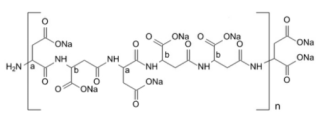
News
Th7 . 24, 2024 01:56 Back to list
The Role of Antioxidants as Effective Chelating Agents in Nutritional Supplements and Health Products
The Role of Antioxidant Chelating Agents in Modern Chemistry
Antioxidant chelating agents are crucial players in both biochemical processes and industrial applications. These compounds exhibit the unique ability to bind metal ions, thereby preventing oxidative stress that can lead to significant cellular damage or degradation in various materials. Understanding their mechanisms, applications, and importance in maintaining both biological and material integrity is essential in modern chemistry.
At the molecular level, oxidation is a reaction where electrons are transferred from one substance to another, often leading to the formation of free radicals—unstable molecules that can initiate chain reactions resulting in cell damage. Metals such as iron, copper, and manganese act as catalysts in these oxidation processes, accelerating the formation of free radicals. Antioxidant chelating agents combat this oxidative damage by forming stable complexes with these metal ions, effectively sequestering them and preventing their participation in harmful reactions.
A well-known example of an antioxidant chelating agent is ethylenediaminetetraacetic acid (EDTA). EDTA can bind to various metal ions, allowing it to protect cells from oxidative stress. This property is not just confined to biological systems; in the food industry, EDTA is often used to extend the shelf life of products by inhibiting oxidation-related spoilage. Similarly, in the cosmetic industry, antioxidant chelating agents are utilized to preserve the integrity and aesthetic quality of formulations, thereby enhancing the product's efficacy and longevity.
antioxidant chelating agent

In agriculture, these agents play a vital role in mitigating the effects of heavy metal toxicity on plants. By binding to harmful metal ions, chelating agents like citric acid and amino acids can facilitate the detoxification process and promote nutrient absorption, leading to healthier crop yields. This application highlights the dual functionality of antioxidant chelating agents protecting both the plants and the consumers who rely on them for sustenance.
The pharmaceutical industry also significantly benefits from the use of antioxidant chelating agents. They are incorporated into drug formulations to enhance bioavailability and stability, ensuring that medications remain effective over time. Furthermore, ongoing research suggests that antioxidant chelators may possess therapeutic potential in treating conditions associated with oxidative stress, such as neurodegenerative diseases, cancer, and cardiovascular disorders.
Despite their benefits, the use of antioxidant chelating agents also requires consideration of potential environmental impacts. The overuse or improper disposal of such agents can lead to the accumulation of chelating compounds in the environment, impacting soil and water quality. Therefore, research is actively being conducted to develop biodegradable alternatives that minimize ecological footprints while retaining effective metal-binding capabilities.
In summary, antioxidant chelating agents play a multifaceted role in both biological and industrial contexts, making them indispensable in modern chemistry. Their ability to bind metal ions not only mitigates oxidative stress but also enhances the performance and durability of various products, ranging from food and cosmetics to pharmaceuticals and agricultural inputs. As research continues to evolve, the potential for developing safer, more effective chelating agents remains a promising frontier, emphasizing the need for ongoing study and innovation in this critical area of chemistry. The balance between harnessing their benefits and minimizing environmental impacts will determine their future role in science and industry, underscoring the importance of responsible use and continued research in antioxidant chelating agents.
-
Polyaspartic Acid Salts in Agricultural Fertilizers: A Sustainable Solution
NewsJul.21,2025
-
OEM Chelating Agent Preservative Supplier & Manufacturer High-Quality Customized Solutions
NewsJul.08,2025
-
OEM Potassium Chelating Agent Manufacturer - Custom Potassium Oxalate & Citrate Solutions
NewsJul.08,2025
-
OEM Pentasodium DTPA Chelating Agent Supplier & Manufacturer High Purity & Cost-Effective Solutions
NewsJul.08,2025
-
High-Efficiency Chelated Trace Elements Fertilizer Bulk Supplier & Manufacturer Quotes
NewsJul.07,2025
-
High Quality K Formation for a Chelating Agent – Reliable Manufacturer & Supplier
NewsJul.07,2025
